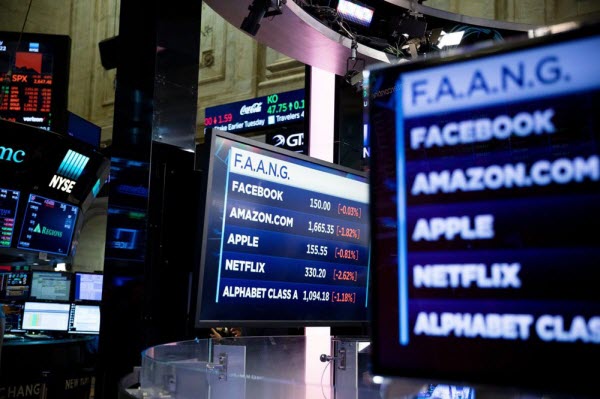US Tech stocks under scrutiny as layoffs make presence felt
During the course of last year, the previously very steady 'big tech' stocks became very volatile.
Big tech - a term often used to describe large-cap, publicly listed technology giants with their origins in Silicon Valley such as Meta, Alphabet (Google), Twitter, Tesla, Netflix and Amazon - is an area of the US stock market indices which has over recent years attracted steady, conservative investment due to overall lack of sudden movements.
The past 12 months have turned that on its head, and there have been times at which the Dow Jones and S&P500 indices, along with the overall performance of the two major New York-based stock exchanges, NYSE and NASDAQ having been affected noticeably by larger moves than had previously been the case.
One of the reasons for the sudden volatility had been the need for US tech firms to have to pay their suppliers and employees in different countries more, due to inflation and the depreciation of certain currencies against the US Dollar, however there had been a few more reasons and some of them are down to internal corporate policy. For example, Elon Musk's recent attempts to purchase Twitter have been surrounded by speculation that he may fire a substantial proportion of the existing workforce.
Overall, however, the staff redundancies in the big tech sector have not been limited to high profile speculation about Elon Musk's plans at Twitter. They have been far more widespread than this, as depicted by last week's employment figures released by the US Government.
Whilst some 261,000 new jobs were filled in the United States in October, blowing away analyst expectations of 200,000, the tech sector has been slowing down recruitment, and in some cases laying off existing staff.
Amazon, Apple and Facebook (Meta) have all announced hiring freezes, and in some cases are making redundancies.
Californian ride-sharing app developer Lyft is about to lay off 13% of its staff, and among the bigshots, Facebook is looking at reducing its workforce at subsidiaries WhatsApp and Instagram.
On a Year on Year basis, Amazon stock is down over 40% and Apple stock is down 25%, partly caused by production delays of its new iPhone 14 which is produced in China and has been subject to factory closures due to the Chinese government's draconian lockdowns which are still in force.
If the sensationalist news is to be believed, Twitter would look to lay off half of its entire payroll under Elon Musk's leadership.
Interestingly, despite the clear downturn in tech company revenues and their intention to reduce headcount compared to the 'low tech' American industries actually hiring more than expected in October, the S&P500 is actually up to 3,800 today compared to yesterday's low point of less than 3,700 which represented a five-day low.
The NASDAQ composite index is up a little too, at 10,560 over yesterday's 10,294 but today's increases still do not take it back to the high points at the beginning of last week.
It appears as though these possible layoffs are currently lingering in the background and until they have actually taken place, corporate performance is still being taken at face value.
What this does show, however, is that tech stocks are still quite steady and not so easily affected by news and are more affected by actions from within the firms themselves.
VIEW FULL ANALYSIS VISIT - FXOpen Blog...
Disclaimer: CFDs are complex instruments and come with a high risk of losing your money.




